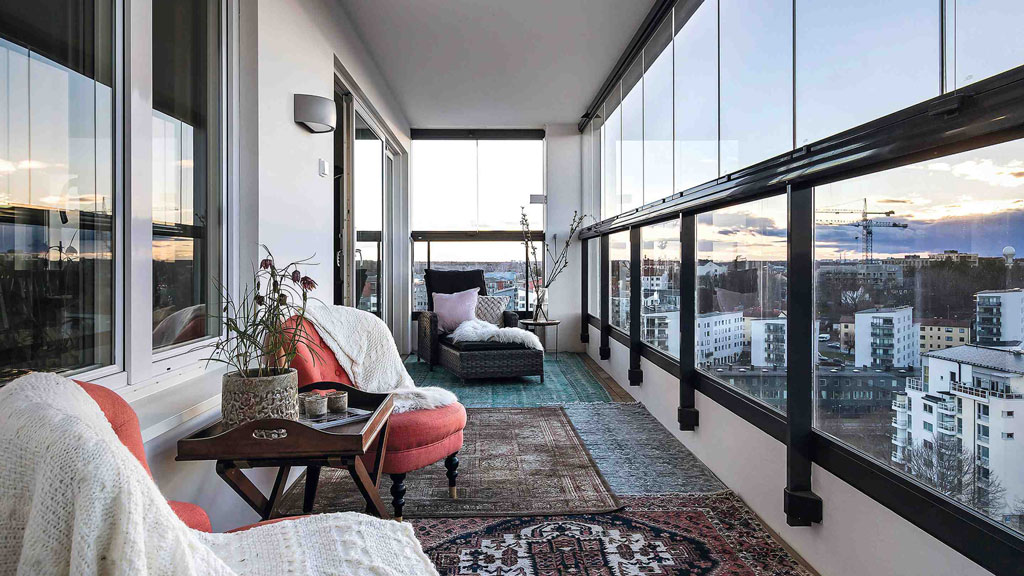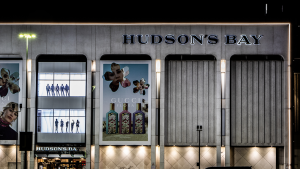The City of North Vancouver (CNV) recently approved Canada’s first zoning bylaw amendments that allow the installation of retractable glass balcony systems in all new multi-family projects.
The systems in question enable balconies to be enjoyed year-round.
“The number of requests we’ve received for considering retractable enclosures has increased recently,” said Michael Epp, CNV’s director of planning and development. “It was apparent our regulations required updating with a consistent approach.”
The glass panels protect balconies from wind, cold, rain, noise and pollution.
“Whenever people have difficulty imagining how it works, I suggest they think of a convertible car,” said Michael Geller, a Vancouver developer, retired architect and consultant for Lumon Canada Inc., which manufactures balcony glass systems. “When it’s nice, you put the top down. The rest of the time, you keep it up.”
Geller says the CNV’s decision to amend its bylaws is significant.
“Although many Canadian municipalities have allowed, without amending their bylaws, the installation of retractable balcony glass panels in new and existing projects, (CNV) is the first municipality to amend its zoning bylaws to show in what circumstances they will be approved,” he said.
Geller says the municipality’s bylaw amendment makes it clear where balcony glass systems can be installed without any implications for floor space ratios (FSR), which regulate the size of buildings.
“That makes it easier for architects and developers to design their buildings and determine when to include balcony glass,” he said.
Geller says the exclusion from FSR calculations is important and has been accepted in many European and Canadian cities.
“Many municipalities recognize that, since there are small gaps between the panels, the balcony remains exterior space,” he said.
In B.C., the City and Township of Langley, Abbotsford, Maple Ridge, Pitt Meadows and Victoria allow installations of the balcony systems without impacting the building area calculations.
“Lumon’s system consists of retractable frameless glass panels,” said Geller. “There are two basic designs. In one, the panels slide along a fixed balcony railing. In the other, they extend from the balcony floor to the ceiling above.”
Lumon has a manufacturing facility outside of Toronto. The system has been installed on balconies in Ontario, Quebec and Metro Vancouver.
James Dobko has a 100-square-foot balcony on his 23rd floor condo in Vancouver, which he uses for barbecues, outdoor dining and entertainment.
Dobko wants to install a Lumon system, which he says he will use mainly as a windbreak.
“Even on a wonderful sunny day, the wind can make a balcony unusable,” he said. “A secondary reason is to have integrated blinds provide sun shade behind the glass panel. Often a sun umbrella is unstable in high winds and a sun blind behind a glass panel is impervious to the wind.”
Dobko says it was difficult to get a permit to install the panels.
“We applied for permits multiple times, but the City of Vancouver was unco-operative and did not even respond to normal correspondence. It wasn’t until Michael Geller got involved that the city opened its ears. The permit has now been approved.”
Ralph Wettstein has a condo with a balcony in the same neighbourhood as Dobko.
“We use it for watching marine traffic, sunsets, cruise ship departures and just enjoying the sunshine,” he said.
Wettstein and his wife installed the glass panels two years ago.
“This was so the city could look at them to confirm it wasn’t an enclosure and it didn’t affect the esthetics of the building,” he said. “The glass windbreak reduces the exterior noise, allows you to sit outside in the winter when it’s sunny and keeps the wind from blowing items off the balcony. It also means less energy is used to heat three condos, as it acts as another barrier and keeps the dirt and rain out.”
Geller and Lumon have been encouraging the City of Vancouver to amend its zoning bylaws to allow installations of balcony glass panel systems without any impact on the FSR, or to put other policies in place.
In 2020, they made a presentation to council to seek its support for the changes.
“Vancouver allows the installation of panels in new projects now, but the bylaw or procedural changes we’ve requested will encourage more projects,” Geller said.
At the conclusion of the presentations, council voted to ask planning staff to report back on potential zoning amendments or regulatory changes related to the retractable balcony glass systems.
Geller hopes changes can be made soon.
“Many staff are so overworked they don’t have the time to take on new tasks,” he said. “Right now, the focus is on housing affordability and reconciliation. These are the issues that demand their attention.”










Recent Comments
comments for this post are closed